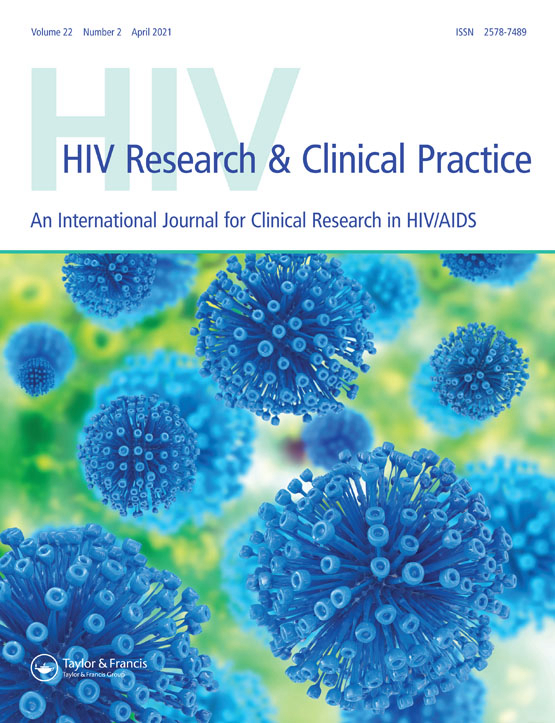Submit a Manuscript to the Journal
HIV Research & Clinical Practice
For an Article Collection on
HIV Research in Latin America and the Caribbean: Where Are We? A Glimpse at What is Happening in the Region
Manuscript deadline
01 May 2024


Article collection guest advisor(s)
Claudia Cortés,
University of Chile
[email protected]
Brenda E. Crabtree Ramírez,
Instituto Nacional de Ciencias Medicas y Nutrición, Salvador Zubirán
[email protected]
Paula M. Luz,
Fundação Oswaldo Cruz
[email protected]
HIV Research in Latin America and the Caribbean: Where Are We? A Glimpse at What is Happening in the Region
Latin America and the Caribbean (LAC) Caribbean is composed of 33 countries plus 15 dependencies or other territories, with an estimated population of 660 million in 2022, which corresponds to 8.5% of the world's population. In 2021, the estimated number of people living with HIV (PWH) in the region ranged from 1.5 to 2.8 million. Recent estimates of the HIV care continuum suggested that 82% of PWH knew their HIV status, 69% of those who knew their diagnosis were receiving antiretroviral therapy (ART), and 91% of those on ART were virally suppressed. Coverage of ART among children is still significantly lower than among adults and less progress has been made over time.
The region has been one of the few that has not only failed to meet the UNAIDS targets but also seen an increase in the number of new infections of 5% since 2010. Moreover, the region is characterized by late diagnosis, forced migration, high rates of violence (especially against women), and an unacceptable number of violent deaths among the transgender population, which is evidence of deep-rooted discrimination.
LAC is one of the regions with the worst inequality in income distribution, leading to a lack of international aid initiatives, such as grants to support science. Despite the difficulties, there is a body of highly qualified researchers who, with effort, manage to advance in their different lines of work and research, generating knowledge that not only benefits the region but also has a global reach.
The topics to be covered in this issue are:
1) Regional/national epidemiology in children and adult populations of PWH.
2) Comorbidities, with special interest in tuberculosis, Chagas disease, histoplasma, and prevalent infections.
3) Studies in specific populations living with HIV, including women, migrant populations, and transgender populations.
4) Implementation of care in the region for PWH.
Claudia Cortés began working at the Arriarán Foundation, the main center for comprehensive care of HIV patients in Chile, after obtaining her degree as a specialist in Infectious Diseases from the Faculty of Medicine of the University of Chile in 2008. She holds the position of Associate Professor with special dedication to clinical research at the same institution. Dr. Cortés has been involved in HIV-related research since 2005, participating as principal investigator and co-investigator in numerous multicenter phase II, III and IV clinical trials. Her research interests also include HIV epidemiology, co-infections, HIV in women and the elderly, and migrant health. She is currently a researcher for the CCASAnet network, advisor to the Chilean Ministry of Health on HIV and COVID issues, and is an elected member of the Governing Council of the International AIDS Society (IAS).
Brenda E. Crabtree Ramírez is Senior Researcher at the HIV Clinic of the Department of Infectious Diseases of the Instituto Nacional de Ciencias Méxicas y Nutrición, Salvador Zubirán (INCMNSZ) and Assistant Professor of the HIV Program of the National Autonomous University of Mexico (UNAM). She is a sub-Investigator for the site in Mexico for the Caribbean, Central and South America network for HIV epidemiology (CCASAnet), region 2 of the IeDEA International epidemiology Databases to Evaluate AIDS since 2008 collaboration that has served as a regional research model to support evidence-based HIV responses in the region. She is also a Representative of Latin America and the Caribbean at IAS Governing Council since 2022.
Paula M. Luz is a clinical epidemiologist of the Instituto Nacional de Infectologia Evandro Chagas (INI) at Fundação Oswaldo Cruz (FIOCRUZ), and a professor of Clinical Research at INI/FIOCRUZ and of Epidemiology and Public Health at Escola Nacional de Saúde Pública at FIOCRUZ. She received her PhD from Yale University, her MD from Universidade Federal Fluminense, and her MPH from Universidade do Estado do Rio de Janeiro. Dr. Luz’s areas of research include epidemiology, mathematical and statistical modeling of disease dynamics, health technology assessments and decision analysis, as applicable to infectious diseases. She has over 20 years of experience in study design and analysis of epidemiologic data, with a focus on sexually transmitted diseases, in particular HIV. Through international collaborations, she works on model-based economic analyses related to HIV care, treatment and prevention, and epidemiologic analyses of longitudinal HIV data within the collaboration of HIV cohorts from Latin America and the Caribbean (CCASANet).
The Guest Advisors declare no conflicts of interest.
All manuscripts submitted to this Article Collection will undergo a full peer-review; the Guest Advisors for this collection will not be handling the manuscripts (unless they are a Editorial Board members). Please review the journal scope and author submission instructions prior to submitting a manuscript.
Benefits of publishing open access within Taylor & Francis
Global marketing and publicity, ensuring your research reaches the people you want it to.
Article Collections bring together the latest research on hot topics from influential researchers across the globe.
Rigorous peer review for every open access article.
Rapid online publication allowing you to share your work quickly.
Looking to Publish your Research?
Find out how to publish your research open access with Taylor & Francis Group.
Choose open accessSubmission Instructions
All manuscripts submitted to this Article Collection will undergo desk assessment and peer-review as part of our standard editorial process. Guest Advisors for this collection will not be involved in peer-reviewing manuscripts unless they are an existing member of the Editorial Board. Please review the journal Aims and Scope and author submission instructions prior to submitting a manuscript.